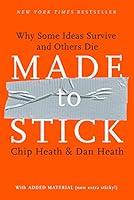As we begin to understand the processes that go into the evolution of complex systems (and what is the human mind, if not a very complex system of processes?), we are recognizing that development isn’t always just slow and steady. Gradualism may be the dominant inclination in scientific circles these days, but both developmental psychology and complexity theory suggests that evolution can also move in leaps and jumps, with periods of relative stasis mixed in with periods of rapid change.
Called a spiritualist metaphysician by one historian, [James Mark] Baldwin and his interests straddled many worlds, and his work has been described as a bridge between “social and cognitive theories of development,” bringing to mind later theories such as Spiral Dynamics (which we will explore in the next chapter) and the philosophy of Jürgen Habermas, which cross the lines between those two realms.
It was never going to be easy to negotiate the trade-off between the physical health of teachers and the mental health of children, between the guidance of scientists and the livelihood of waiters, between being alive and being OK. All of this required a society where people encountered one another as fellow citizens of goodwill and a government that heard them, and we had neither.
The reason values seem so woolly-headed to empiricists is that empiricists keep trying to assign them to subjects or objects. You can’t do it. You get all mixed up because values don’t belong to either group. They are a separate category all their own.
We always condemn most in others, he [Phaedrus] thought, that which we most fear in ourselves.
Anxiety, the next gumption trap (2 words), is sort of the opposite of ego. You’re so sure you’ll do everything wrong you’re afraid to do anything at all. Often this, rather than “laziness,” is the real reason you find it hard to get started. This gumption trap (2 words) of anxiety, which results from overmotivation, can lead to all kinds of errors of excessive fussiness. You fix things that don’t need fixing, and chase after imaginary ailments. You jump to wild conclusions and build all kinds of errors into the machine because of your own nervousness.
As we pored over hundreds of sticky ideas (2 words), we saw, over and over, the same six principles at work. PRINCIPLE 1: SIMPLICITY How do we find the essential core of our ideas? A successful defense lawyer says, “If you argue ten points, even if each is a good point, when they get back to the jury room they won’t remember any.” To strip an idea down to its core, we must be masters of exclusion. We must relentlessly prioritize.





